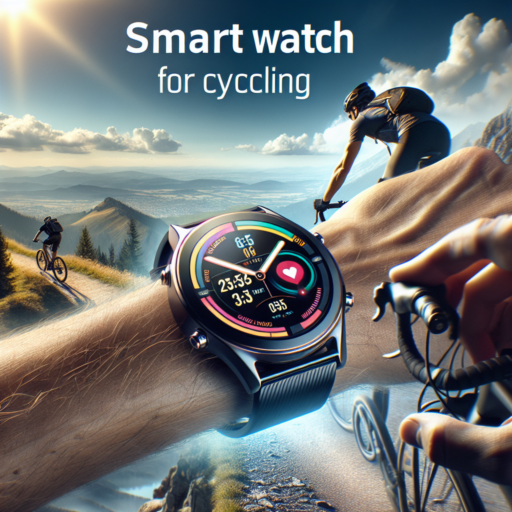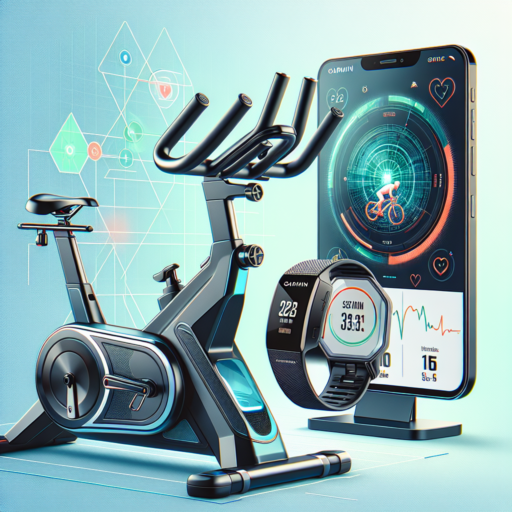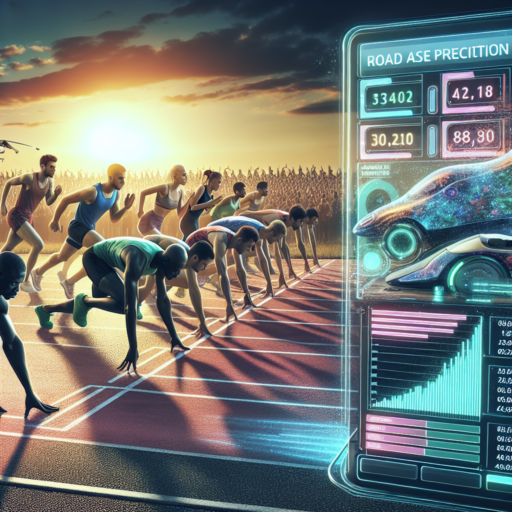Is a smart watch good for cycling?
Certainly, exploring the functionalities and advantages of using a smart watch for cycling can provide some insightful perspectives:
Advanced Tracking Features for Cyclists
Modern smart watches come equipped with a plethora of features specifically designed to enhance the cycling experience. GPS tracking is one of the most prominent features, enabling cyclists to navigate and record their routes with precision. Additionally, these devices often offer altitude, speed, and distance tracking, allowing cyclists to monitor their performance in real time. This information is crucial for those looking to improve their cycling metrics over time.
Health Monitoring While on the Move
Besides performance metrics, smart watches offer an array of health monitoring capabilities. Heart rate monitoring is a standard feature, providing cyclists with instantaneous feedback on their physical exertion levels. Some advanced models also measure blood oxygen levels and stress, which can be particularly useful for endurance cyclists looking to optimize their training and recovery. These health metrics can help cyclists adjust their effort during rides to maintain optimal performance and well-being.
Convenience and Connectivity
The convenience of having a lightweight, wearable device that keeps you connected even while cycling cannot be overstated. With a smart watch, cyclists can receive notifications for calls, messages, and even weather alerts without needing to stop and check their smartphones. This level of connectivity ensures safety and convenience, allowing for a seamless cycling experience. Moreover, the ability to control music or podcasts directly from the wrist can make long rides more enjoyable.
What watches do cyclists use?
Cyclists, known for their attention to performance and detail, often equip themselves with watches that can keep pace with their demanding sport. The market is flooded with options that cater specifically to their needs, from GPS tracking to heart rate monitoring. In exploring the question of what watches do cyclists use, we dive into the specifics that transform a standard timepiece into a cyclist’s companion.
Features Cyclists Look For
- GPS Functionality: Essential for tracking distance, speed, and navigating routes.
- Heart Rate Monitoring: Provides insights into the cyclist’s physical condition and exertion levels.
- Durability and Water Resistance: A watch that can withstand weather elements and the rigor of cycling activities.
- Connectivity: Compatibility with smartphones and cycling apps for data analysis and sharing.
From smartwatches with multi-sport capabilities to specialized cycling watches, the choice largely depends on the cyclist’s specific requirements and budget. Watches like the Garmin Forerunner series and the Polar Vantage M are a testament to how the industry has evolved to meet the intricate needs of cyclists, offering not just time-keeping but a suite of features designed to enhance the cycling experience.
Popular Picks Among Cyclists
Brands such as Garmin, Suunto, and Polar are at the forefront, providing gadgets that seamlessly blend in with a cyclist’s lifestyle. These watches offer a mix of reliability, advanced metrics, and user-friendliness, making them a popular choice among both amateur and professional cyclists. Their commitment to innovation means cyclists have access to the latest technology to track their progress, plan their routes, and ultimately, improve their performance.
How do smartwatches track cycling?
Smartwatches have become indispensable for cyclists looking to monitor their performance and health metrics accurately. But how do these compact devices track cycling activity? Essentially, it boils down to a combination of sophisticated sensors and software algorithms designed to interpret the user’s movements specifically for cycling.
Firstly, most smartwatches are equipped with a GPS module, which is crucial for tracking outdoor cycling. GPS, or Global Positioning System, allows the watch to measure the cyclist’s speed and distance covered by calculating the change in position over time. This data is especially valuable for cyclists who are keen on tracking their route and improvements in speed over different terrains.
Advanced Sensors and Algorithms
In addition to the GPS, smartwatches utilize a variety of other sensors to provide comprehensive cycling data. An accelerometer and gyroscope work in tandem to detect the start and stop of cycling activity, as well as the orientation and tilt of the watch, which helps in distinguishing cycling from other types of physical activities. For more advanced metrics like elevation gain, an altimeter sensor is often employed to measure the altitude changes during a cycling session. These sensors feed data to sophisticated algorithms that filter out unrelated movements and accurately capture cycling-specific metrics.
Lastly, the integration of heart rate sensors in smartwatches allows cyclists to monitor their physical exertion levels. By tracking the heart rate in real-time, cyclists can adjust their effort to stay within targeted training zones, promoting both safety and efficiency in training. Combined, these advanced technologies enable smartwatches to provide a detailed and accurate tracking of cycling activity, turning every ride into an opportunity for performance analysis and improvement.
What watches do Tour de France riders wear?
The fascination with the Tour de France extends beyond the grueling challenge of the race itself, touching on the equipment and gear that riders use to optimize performance and track crucial data. Among the most intriguing pieces of technology on the racers’ wrists are their watches, which are designed to withstand extreme conditions while offering vital metrics for both training and competition.
Riders in the Tour de France often opt for high-performance sports watches that offer a blend of durability, precision, and advanced features. These watches are equipped with functionalities essential for cycling at the highest level, including but not limited to GPS navigation, altimeter readings, heart rate monitoring, and power meter connectivity. Brands like Garmin and Polar are particularly popular among the peloton for their specialization in sports technology, offering watches that seamlessly integrate with other cycling equipment to provide a comprehensive data analysis platform.
Popular Watch Features Among Tour de France Cyclists
- GPS Functionality: For mapping routes and tracking distance covered.
- Heart Rate Monitor: Essential for monitoring physiological effort and ensuring riders are training within the correct zones.
- Altimeter: Crucial for preparing for climbs and evaluating performance in mountain stages.
- Connectivity with Power Meters: Allows riders to measure their power output in real-time, a key metric for performance optimization.
The choice of watch can vary significantly from one rider to another, influenced by personal preference, sponsorship agreements, and the specific demands of their training and race strategies. However, the common thread among all choices is the pursuit of technological advantage, where every detail counts in the quest for victory in the world’s most prestigious cycling race.









